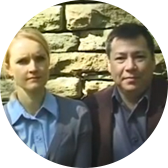georgia FAQ Categories
Georgia Lemon Law Basics
Is There a Lemon Law in Georgia?
Does Georgia Have a Lemon Law for Used Cars?
What Vehicles Are Excluded from Coverage under the Georgia Lemon Law?
What Qualifies as a “Reasonable Number of Repair Attempts” under the Georgia Lemon Law?
What Kinds of Defects Does the Georgia Lemon Law Cover?
How Long Is the Lemon Law Rights Period in Georgia?
What if My Vehicle Is in for Repair When My Rights Period Expires?
How Do I File a Lemon Law Claim in Georgia?
Do I Need an Attorney for Georgia Lemon Law?
What is the Georgia Lemon Law Fee?
Are Recalls Considered Under Georgia’s Lemon Law?
Is There a Lemon Law in Georgia?
YES, the Georgia Motor Vehicle Warranty Rights Act allows consumers to return lemon vehicles to the manufacturer for a refund or replacement vehicle. The law covers new vehicles that have a defect that substantially impairs their use, value, or safety.
To qualify for protection under the law, consumers must report the defect to the manufacturer within the first 24 months or 24,000 miles of ownership, whichever comes first. If the manufacturer fails to repair the vehicle after a reasonable number of attempts, the vehicle is presumed to be a lemon.
Georgians are also protected by the “federal Lemon Law,” the Magnuson-Moss Warranty Act. which offers a longer reporting window, covering any defects reported while the vehicle is under warranty. This ensures that consumers can seek compensation for their lemon even if the vehicle’s defects present themselves after the first two years of ownership.
Does Georgia Have a Lemon Law for Used Cars?
YES, the Magnuson-Moss Warranty Act covers used cars in Georgia as long as the vehicle is covered by warranty when the defect is first reported. So even though the Georgia Motor Vehicle Warranty Rights Act applies only to new vehicles, consumers still have rights when purchasing a used vehicle in Georgia.
What Vehicles Are Excluded from Coverage under the Georgia Lemon Law?
The Georgia Lemon Law specifically excludes coverage for:
● Trucks that weigh more than 12,000 lbs.
● Motorcycles and mopeds
● Golf carts
● The non-vehicle portions of motorhomes
The law covers new, self-propelled vehicles that are purchased with the primary intention of transporting people or property on public roads. Any vehicle that meets this definition can qualify for protection under the Georgia Lemon Law as long as it isn’t one of the excluded vehicle types listed above.
If your vehicle is excluded from protection under the Georgia Lemon Law, it’s still likely to be covered by the Magnuson-Moss Warranty Act. This “federal Lemon Law” applies to all warrantied consumer products, including vehicles.
So if you think you have a lemon, reach out to a Georgia Lemon Law attorney to review your case. Even if your vehicle type isn’t covered by state law, you may still be owed compensation.
What Qualifies as a “Reasonable Number of Repair Attempts” under the Georgia Lemon Law?
Consumers in Georgia can only pursue a Lemon Law claim after providing the manufacturer with a “reasonable number of repair attempts.” Depending on the kind of defect, the law defines a “reasonable number” as anywhere from one to three repair attempts.
For a defect that poses a serious safety issue, a single repair attempt will suffice. For a defect that is not a serious safety issue, the consumer must provide the manufacturer with three repair attempts. Additionally, consumers may pursue claims if their vehicle is out of service for repairs for a total of 30 days, regardless of the number of defects or repair attempts.
What Kinds of Defects Does the Georgia Lemon Law Cover?
The Georgia Lemon Law covers defects that substantially impair the use, value, or safety of a vehicle. It also covers any defect that “renders the new motor vehicle nonconforming to a manufacturer’s warranty.” In laymen’s terms, Georgia Lemon Law applies to any defect covered by the manufacturer’s warranty.
The law does NOT cover defects resulting from abuse, neglect, or unauthorized modifications.
How Long Is the Lemon Law Rights Period in Georgia?
Georgia’s Lemon Law Rights Period lasts for 24 months or 24,000 miles, whichever comes first. Consumers must bring their vehicle in for repairs during this period for it to qualify for protection under the Georgia Lemon Law. After the Rights Period, consumers have an additional 12 months to file for arbitration.
If you miss either of these deadlines, you can still file a claim under the Magnuson-Moss Warranty Act. This law covers all warranty claims; if your vehicle is under warranty when you first report its defect, it’s covered. Plus, you have up to four years after the warranty is breached to file a claim, which often translates to four years after the first failed repair attempt.
What if My Vehicle Is in for Repair When My Rights Period Expires?
The Georgia Lemon Law covers defects reported during the Lemon Law Rights Period. Thus, you can still qualify for compensation under the law if your car is in for repairs when the rights period expires. In fact, if a defect was “repaired” during the Lemon Law Rights Period but reappears after the rights period ends, it’s still covered under the Georgia Lemon Law.
Even if you don’t report a defect during Georgia’s Lemon Law Rights Period, the Magnuson-Moss Warranty Act applies to any defects reported during the warranty period. And this federal Lemon Law provides consumers with up to four years to file a claim after the warranty was breached. For lemons, this usually means four years after the first repair attempt.
How Do I File a Lemon Law Claim in Georgia?
Before you can file a Lemon Law claim in Georgia, you must first provide your vehicle’s manufacturer with a “reasonable number of repair attempts.” And before the “final attempt,” you must notify the manufacturer in writing of the defect. We can do this on your behalf; and, in many cases, we receive settlement offers at this point.
If the manufacturer fails to repair the defect after these attempts, the next step is to present your case to the Georgia Department of Law’s Consumer Protection Division (CPD). The CPD offers a State-Operated Arbitration program to settle such disputes. We can help you gather the documents necessary to support your claim and submit it to the arbitrators for review.
Once the CPD reviews your case, they issue a ruling as to the compensation you’re owed. If you aren’t satisfied with the CPD’s ruling, the next step would be to file suit against the manufacturer. Doing so almost always results in a settlement offer because manufacturers realize that it doesn’t make sense to pay the legal expenses of a trial that they’re likely to lose.
As a result, more than 99% of our cases settle without going to trial. Whenever we receive a settlement offer, from the CPD or the manufacturer, it will be up to you to decide whether you’ll accept it. Our Georgia Lemon Law attorneys will provide their professional opinion on how you should proceed, but only you can decide to accept or reject a settlement.
Do I Need an Attorney for Georgia Lemon Law?
No, consumers are welcome to represent themselves during Lemon Law proceedings in Georgia. However, when you win your case, state and federal Lemon Laws hold manufacturers responsible for your attorneys’ fees. And at Krohn & Moss, Ltd. Consumer Law Center®, we only charge for our services if our clients prevail.
So, although you don’t need an attorney to file a Lemon Law claim in Georgia, it doesn’t make sense to do proceed without one. Why try to fight a car company’s high-priced legal team alone when you can get an experienced attorney to represent you without paying a penny out-of-pocket? If you have a lemon, contact us today for a free case review to get things started.
What is the Georgia Lemon Law Fee?
The Georgia Lemon Law fee is a $3.00 surcharge added to the sale and lease of every new vehicle in Georgia. This fee is used to fund the State-Operated Arbitration program. As a result, consumers are free to file Lemon Law claims with this program at no additional cost.
Are Recalls Considered Under Georgia’s Lemon Law?
YES, manufacturers only issue recalls as a remedy to widespread defects. If they fail to repair the recalled defect after a reasonable number of attempts, you may pursue be entitled to compensation, assuming your vehicle was within Georgia’s Lemon Law Rights Period or covered by a warranty when the recall was issued.
That said, manufacturers rarely issue recalls before they have a tested solution to the problem. So, while recalls are covered under the Georgia Lemon Law, failed repair attempts for recalls are very uncommon.
But remember, Georgia classifies vehicles as lemons if they’ve been out of service for repairs for a total of 30 days. Any time spent repairing recalls counts toward this total. And if that repair time pushes your vehicle past the 30-day threshold, you should qualify for compensation.
When you aren’t sure if you have a lemon, reach out to us so we can review your case free of charge. If you have a legitimate claim, we’ll help you collect the compensation you deserve and bill the manufacturer for our services. If not, we can still advise you on the best course of action to resolve your issue.












